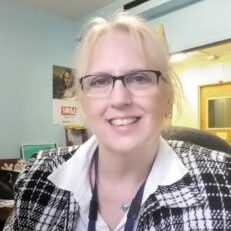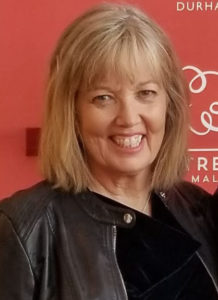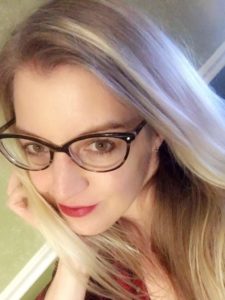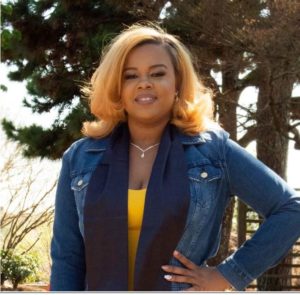Our Story
The revitalized NCAPP board, comprised of
-
- Co-Presidents:
- Carol Williams
- Dana Truman-Schram
- Secretary:
- Liandra Wheeler
- Treasurer:
- Amber Margaretten
- Member:
- Laura Quinn
- Janet Heuring-Larsen
- Keshawna Solomon
- Les Brinson
- Board Consultant
- Vinston Goldman
- Robert Hill
- Thomas Thompson
- Co-Presidents:
We will forever be indebted to the contributions of our departed friend and colleague Flora Dunbar, and the former NCAPP Board members who have supported us in our efforts and paved the way for our successes.
Our Approach
BRIEF HISTORY OF NCAPP
In 1994, Licensed Psychological Associates (LPAs) across the state of North Carolina became concerned about their continued ability to maintain employment and provide services. Insurance companies had begun paying only independent practitioners for services rendered, and the rising expense for employers to pay for the supervision of LPAs was an increasingly pressing problem. Consequently, twenty or so LPAs met during the North Carolina Psychological Association’s annual convention to discuss their concerns. After much lively interaction it was decided that the LPAs were losing ground vis-a-vis other master-degreed providers—social workers, LPCs, etc.—and the ability to achieve independent practice was apparent. Subsequently, LPAs decided to form new organization to address these concerns.
A month later fifteen or so LPAs gathered to form strategy. It was eventually agreed that a state-wide convention was necessary to address the issue and allow everyone to express their opinions. This was arranged, and sixty or so participants from all over the state attended. It was decided that the LPAs should form an organization, temporarily called the LPA Advocates. Officers were nominated and voted upon. Henry Tonn was voted president, Tom Haifley, vice president, Nancy Webb, secretary, and Katherine Ridley (now Smith) treasurer. LPAs from various localities agreed to assume support positions and the first board meeting was arranged in Greensboro, because of its central location.
Shortly thereafter, twelve to twenty people met in Greensboro every month, during which time a constitution was created with the necessary bylaws. After much debate and numerous suggestions, it was decided to re-name the organization the North Carolina Association of Professional Psychologists, which won out by one vote over “the North Carolina Society of Psychologists.” Money was raised through generous contributions, Al Adams, a prominent lobbyist, was hired, and a bill for independence was drafted with considerable effort by Flora Dunbar, legislative representative. A legislative sponsor was found and the bill was introduced the following year.
Despite the dedicated efforts of many LPAs who canvassed the legislature in 1995, and contacted their personal legislators back home, the bill never reached the floor of the House to be voted upon. The bill was argued before a subcommittee and a full committee, passing on both occasions, however, it died in the Finance Committee without a vote. Two years later NCAPP launched another bill in the legislature, with the same results.
In the early 2000’s NCPA launched a Task Force to examine the question of independence for LPAs. Nine LP’s and nine LPAs across the state met regularly in Raleigh to discuss the issue and it was determined that the LPAs should be provided the opportunity to achieve independent practice in the state of North Carolina. Work began on a new bill, however, despite valiant efforts, the bill lacked sufficient support from all stakeholders to move forward to the legislature.
Over the years NCAPP continued as a group dedicated to the professional practice of psychology, with periodic attempts to develop a new direction. That new direction was reinvigorated in 2015, when a new approach began development, culminating in the current petition. NCAPP, which has existed now for twenty-five years, is continuing the work of advocating for, and assisting Licensed Psychological Associates to practice and compete fairly in the mental health field.
In recent years, NCAPP has been solidly focused on ending career long supervision. While supervision hours have been reduced to a mere 4 hours per year, supervision is still a barrier that results in a restricted license, the inability to secure credentialing with insurance providers, and an overall barrier to the citizens of North Carolina with regard to access to psychological services.
Thank you for your support.
Our Story
Meet the Team
We are working to make psychological services more readily available to the public, less expensive, more readily covered by insurance and governmental programs, and reduce operational costs to LPAs.

Carol E. Williams, Ph.D, LPA, BCBA-D
NCAPP Co-President
Working as a psychologist, I am clinically trained to evaluate skills, strengths, preferences, and functioning, to administer tests and assessments, and to help people learn to effectively work through issues. I have worked with children and adolescents, to change and improve behavior, children and adults with developmental disabilities, and in my present position, I work primarily with children who have developmental disabilities / autism. Additionally, I have Board Certification in Behavior Analysis - doctoral, and I have attained a doctoral degree in Applied Behavioral Analysis.
Dana Truman-Schram, MA, LPA, HSP-PA
NCAPP Co-President
Hello, my name is Dana Truman-Schram. I am proud to be a masters psychologist and to advocate for my psychologist peers and NC citizens’ access to extraordinary, affordable psychological services. I graduated from UNC-Charlotte in 1997 with a masters in Clinical/Community Psychology and have been practicing as an LPA ever since. I specialize in psychological and developmental evaluations. I have had the privilege of working in all types of settings including rural community mental health, juvenile corrections, a medical-home based model of care, and private practice. I have a passion for guiding people toward the treatment and support services that will help them thrive. I am also fiercely motivated in efforts to make independent licensure for LPA a reality as soon as possible and ensure that masters’ level psychologists have a voice in all arenas.

Laura Quinn, MA, LPA
NCAPP Treasurer
I have been practicing psychology as an LPA in North Carolina since 1982 (apart from a 2 year period when my husband and I lived in Atlanta), primarily in the field of developmental disabilities. I started and will likely end my career working in state developmental centers as a staff psychologist. In the many years between those bookends, I worked as a behavioral consultant and contracted evaluator in schools across the state for students with intellectual disabilities, autism, behavioral and emotional disabilities, and learning disabilities. I worked in child protective services as a consultant/ evaluator/ teacher/ trainer for parents with cognitive limitations and their families.
After starting our own consulting business, my husband and I have contracted with MCO's to provide behavioral consultation for individuals with developmental disabilities in a variety of settings including family homes and group homes. I am guardian for my sister with intellectual disabilities and have been guardian for another individual with severe and persistent mental illness, who, among others, have inspired the passion I feel for the work I have done and continue to do.
I so admire the previous work the NCAPP leadership has done to advance the interests of LPA's in North Carolina. Their dedication has been amazing. I believe that they and NCAPP are deserving of all North Carolina LPA's unqualified support.
Liandra Wheeler, M.A., LPA
NCAPP Secretary
Liandra Wheeler, MA is currently working towards becoming a Licensed Psychological Associate as well as a Health Service Provider-Psychological Associate in the state of North Carolina. She recently obtained her Masters in Clinical Psychology from North Carolina Central University and received her Bachelors in Psychology from The University of North Carolina at Greensboro with a minor in African American studies and Classical studies. While attending graduate school she was inducted into Psi Chi international honor society in psychology. Prior to completing her masters she founded her non profit, Mental Illness Anonymous (M.I.A) with a goal of promoting a positive shift in physical, emotional, and mental health among individuals with mental illness. Weakening the stigma against mental illness in the community, Creating a sense of hope and support that will give people the courage to accept help with their illness and potentially break the cycle. She has worked in the mental health field since 2014 and has experience working with children, adolescents, and adults with diverse backgrounds and a range of concerns. Her education and professional background in both the mind and the body gives her a unique and effective approach to counseling. She will work to provide clients with tailored treatment plans that can be integrated into their daily lives.

Janet Heuring-Larsen, MA, LPA, LCAS
NCAPP Board Member
Amber Margaretten, M.A., LPA, HSP-PA
NCAPP Board Member
Amber Margaretten is a licensed psychological associate in North Carolina. She attended Appalachian State and North Carolina State University for her undergraduate degree in psychology. After her undergrad, she obtained her master’s in clinical psychology from North Carolina Central University while working full time with the Department of Adult Correction. She completed her practicum at Duke University in their pain clinic providing individual and group therapy to those with chronic illnesses and pain. Amber has been in the mental health field for about nine years. Much of her work was in various correctional facilities performing individual therapy, group therapy, and psychological assessments. Recently, she ventured into private practice where she has focused on providing assessments in school systems in rural North Carolina and providing critical incident appointments to first responders. Other areas of experience include geriatrics, group home settings, and providing affirming care to diverse populations.
Bob Hill, PhD, LP
NCAPP Board Member
Bob Hill, Ph.D. has been a faculty member in the Department of Psychology at Appalachian State University since 1992. He has been actively involved in training LPA’s since then, teaching psychotherapy, ethics and assessment. He was program Director of the Master’s Clinical Psychology Graduate program at ASU for 8 years. He has a private practice and has provided professional presentations on ethics regionally and nationally. He is well acquainted with the caliber and training provided to LPA’s in NC, and has supervised a number of LPA’s over the past several decades. He has long believed that LPA’s should have a pathway to practice independently in NC. Bob Hill served on the NC Psychology Board from 2011-2020, where he supported the NCAPP petition for a rules change to accommodate independent practice. Dr. Hill plans to continue to support NCAPP’s efforts to achieve independent practice and parity with other master’s level mental health professionals who practice independently in NC.
Thomas J. Thompson, Ph.D., LP
Board Consultant
Thomas J. Thompson, Ph.D. is a licensed psychologist specializing in Applied Behavior Analysis with more than 44 years of experience working with clients with intellectual disabilities and autism. He received his doctorate in Psychology from the University of Illinois-Chicago in 1988, and his Master’s in Psychology from Western Michigan University in 1979. Dr. Thompson retired as the Director of Psychology Services at the Murdoch Developmental Center in 2018. He is currently a clinician co-owner of BIP -Behavior Intervention Professionals in Hillsborough, NC, and a consultant with Butterfly Effects, LLC., a national leader in ASD treatment. He served 9 years on the North Carolina Psychology Board, the last three years as Chair. He is a past-president of NCABA and has given 24 presentations in 13 previous conferences.
Next Steps...
We need your help to keep moving forward with the quest to end career-long supervision of LPAs and to promote the profession of psychology








